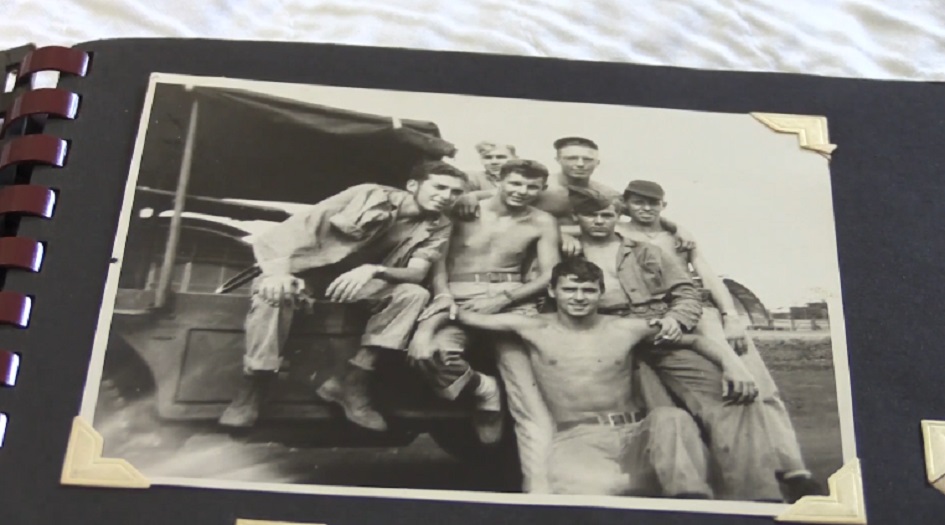On Monday, millions of Americans will kick of their summers by celebrating Memorial Day, which commemorates the people who died while serving in the country’s armed forces.
One American from the Greatest Generation, who served in World War II, recalled what it was like to fight in the Battle of Iwo Jima, the victory of which is represented by the iconic image of six American Marines raising the U.S. flag at the top of Mount Suribachi.
World’s Oldest WWII Veteran Gets Block Party Celebration for 112th Birthday
The battle resulted in over 26,000 American casualties. In an interview with Maine radio station WFVX, Marine veteran Richard Lowell described the mass casualties as “20,000 on that frigging pile of sand wounded and dead.”
Lowell, who lives in the Maine Veterans Home in Bangor, was just 18 when he and others in the 5th Marine Amphibious Corps joined with other Marine units to take the island 72 years ago.
“We walked over the dead, some stacked three high,” he recalled.
Although the Americans came out victorious, the Japanese soldiers put up a fight by creating a stronghold inside the island’s highest peak, where they had built a factory for building weapons, Lowell said.
“That was another tale — going in through those caves and taking over the Japanese village inside Suribachi,” he added. “It’s was one of those deals where you had to be there to understand it.”
The soldiers did not know there were women inside the factory when they shot inside of it, Lowell said.
“We had to do some shooting in there,” Lowell said, taking a pause before he continued. “Eighteen years old. I didn’t know any different. I didn’t know any better.”
After the battle was won, Lowell was one of the soldiers ordered to go up the mountain, where he was put on guard duty.
He witnessed the iconic moment when a photographer from The Associated Press snapped a picture of the six soldiers raising the flag.
After his service, Lowell returned to Maine and married his wife, with whom he had five children.
Lowell lived out the American dream when he briefly played minor league baseball. He then became a baseball coach, umpire and local sports team organizer.
After his traumatic experience in the war, he says he’d never return to the Pacific again, although he’s been invited to go several times.
“It still bothers me once in a while, if I let it,” he said.
(H/T: WFVX)


